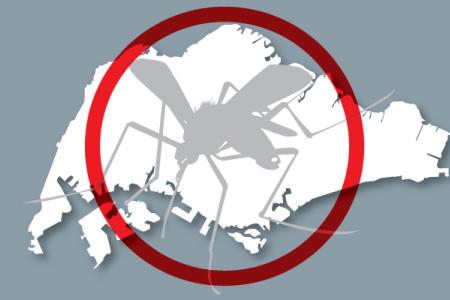Change in dominant virus strain poses risk to former dengue patients
Dominant virus type has changed, meaning they are more likely to become severely ill if infected
More than 50,000 people who came down with dengue fever between 2013 and 2015 may have to take extra precautions against mosquito bites as the dominant virus type circulating now is different from the one in those years.
They are likely to have been infected by the Den-1 virus and could become severely ill if they are infected now by Den-2, the current dominant strain.
Studies show that Den-2 is more of a problem for people who have been infected before, said Professor Ooi Eng Eong, deputy director of the Emerging Infectious Diseases Programme at Duke-NUS Medical School.
This could explain the severity of the illness this year, he said. In the first 23 weeks of this year, 38 people had the more serious dengue haemorrhagic fever, almost four times the median number for the same period in each of the past five years.
There are four strains of the dengue virus and people who have been infected by one are immune only to that and not the other three.
Historically, the dominant strains here have been Den-1 and Den-2, with bigger outbreaks occurring whenever there is a switch in the dominant strain.
More than 22,000 people were infected in 2013 - the largest outbreak in Singapore - with eight deaths.
The following year, more than 18,000 people were infected, six of whom died.
And in 2015, more than 11,000 were infected, with six people dying.
Four people have died of dengue this year, among more than 5,260 infected so far.
Prof Ooi said it is "possible that the big outbreak of Den-1 in 2013 primed a large proportion of our population with primary infection".
"Hence, the re-emergence of Den-2 is occurring in a background of increased rate of secondary infection," he said, referring to people who may have been infected two or more times.
Overall, dengue infections continue to soar, with a 17 per cent jump in weekly infections last week - from 400 to 468.
There are 112 active clusters with the majority in the eastern half of the country, although the two biggest clusters, with a total of 356 infections, are in Woodlands.
The mosquito population grew by 25 per cent in April over the previous month, said the National Environment Agency.
This time of the year is the usual peak for dengue infections, since hotter weather shortens the mosquito breeding cycle.
Get The New Paper on your phone with the free TNP app. Download from the Apple App Store or Google Play Store now



